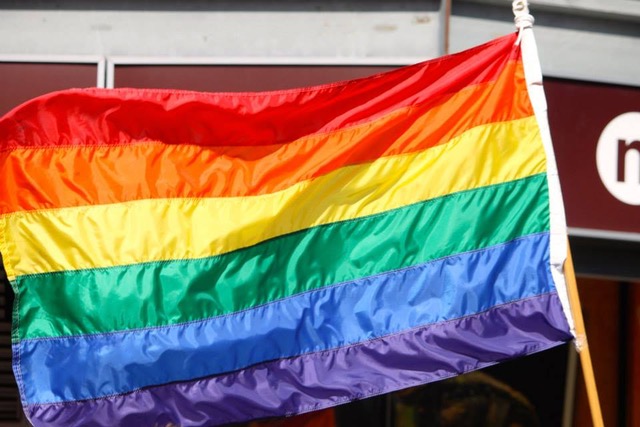
Equality for LGBTQ+ Congregants Is Still a Struggle in Some Canadian Churches
by Kaitlin Bardswich
I like to describe my spiritual identity as a bit of an “ecumenical mutt.” I was raised Roman Catholic, had all the childhood sacraments, and attended Catholic school in southern Ontario. In university, I struggled with my faith and turned to The United Church of Canada for refuge. I found a home there.
Two and a half years ago, I moved to Ottawa and began looking for a new congregation. After meeting my partner, Katy, I began attending her church, a welcoming Anglican congregation.
In January, Katy and I got engaged and began the process of planning our February 2020 wedding. It was during these early planning stages that I realized just how important it was to me to get married before God and my family and friends, in a church that held meaning to me and Katy. For Katy, she’s been attending this church since she was two years old. For me, it had welcomed me with open arms when I began attending regularly two years ago.
The Anglican Church of Canada does not yet officially allow same-sex marriage; after a tenuous vote three years ago that was initially wrongly counted as a no, the second, binding vote will be next month. I’m not one to enjoy waiting for other people to vote on whether I can have the same rights and privileges as straight people, so we decided to speak with our minister, who then spoke with the bishop. Given the support of the congregation, we were assured we could get married in our church regardless of how the vote goes in June.

Ironically, just down the road, the local United Church did not allow same-sex marriage despite the national church being one of the first churches in the world to support it. The minister there, after hearing that Katy and I were getting married in their neighbouring Anglican church, asked us to speak to the congregation. It was already going through a process of deciding whether to change their marriage policy. “If the Anglicans are doing it, we should be able to!” she jokingly told me.
Katy and I attended one of the congregation’s meetings, where we had to sit through two speeches about how we and people like us are not full members of the church and do not deserve access to the same sacraments as straight people. This was extremely painful.
Yes, the majority of the people there were supportive and believed that their church should allow same-sex marriages. But some also lamented that people might leave the congregation should this pass. Some spoke of how welcoming the church is to everyone already.
But as a queer person, I would not feel comfortable attending a church that does not fully accept me. You can’t say you’re accepting of everyone but not allow everyone to fully participate.
Love the sinner and not the sin is, simply, insulting. Being in a loving relationship is not a sin.
Because even if these words weren’t used, when people say that they’re not homophobic but they believe God said marriage is between a man and a woman and they don’t want me and my partner to get married in the sanctuary, what I hear is that my marriage will somehow defile the sanctuary. You can’t say you’re not homophobic yet believe that if we got married on a Saturday and you were in church on the Sunday, your church experience would somehow be different.
We do not have that much power.
Overall, my main argument was that, if you believe that your God loves you more than me, that’s your right. And you do believe that if you think God values your marriage but disparages mine. Nobody is forcing you to bless marriages like mine, but you don’t have the right to stop others from doing so.
In the end, this congregation voted overwhelmingly in favour of allowing same-sex marriage in their church. It was a victory for many, especially those who supported one congregant, a schoolmate of Katy’s, who was not allowed to marry her partner a few years ago.
So yes, it all turned out OK in the end. But some of the pain is still there – the pain that there are people in our communities and churches who think we’re second class Christians. And even worse – that they think God does too.

Kaitlin Bardswich is a member of the CCS Communications Committee





Recent Comments